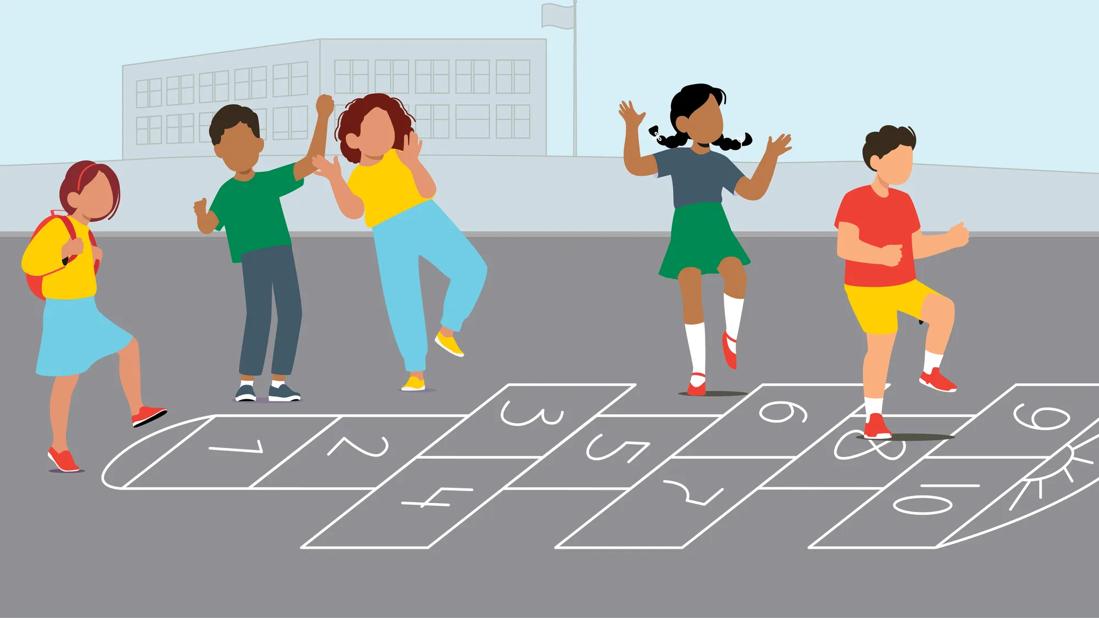How BMI Is Used for Children

We all want our kids to be happy. Healthy. Living their best lives.
Advertisement
Cleveland Clinic is a non-profit academic medical center. Advertising on our site helps support our mission. We do not endorse non-Cleveland Clinic products or services. Policy
So, you make sure they’re properly vaccinated. You limit their screen time (as much as anyone can). And you take them for well-check appointments.
During those appointments, their healthcare provider measures their height and weight. They show you their growth chart. And talk about how they’re developing.
But when they tell you your child’s BMI (body mass index), you might wonder what precisely that means and whether they’re in a healthy range. (And do you worry if they’re not?)
We talked with pediatric endocrinologist Roy Kim, MD, about kids’ BMIs and what it means for their health.
How to calculate BMI for children
Starting around age 2, your child’s healthcare provider will check their BMI, body mass index. It’s a measurement that accounts for their weight relative to their height.
“BMI factors in a child’s weight and also their height, because taller kids will naturally weigh more,” Dr. Kim points out. “We know that throughout childhood and beyond, weight doesn’t capture the whole picture of a person’s health. It’s a rough indicator of body fat, but it’s not perfect.”
And there’s more to it, too. Because kids’ BMI is also considered in context of other kids their age, based on decades of data.
BMI is a useful tool to initially gauge how a child is growing and developing. It can give you some insight into your kid’s health and their risk for health conditions that can affect their physical and mental well-being.
Of course, BMI alone doesn’t tell you the full story. Your child’s health is more than a collection of numbers about their height and weight.
But BMI can be used to understand whether they’re living with obesity or underweight. And that’s important because a BMI in an unhealthy range can put them at risk for a number of health conditions.
Healthcare providers use a variety of methods to track a child’s growth:
- BMI.
- BMI percentiles.
- Their own growth chart.
Dr. Kim shares how each works.
Kids’ BMI calculator
Online calculators are available to find BMI for kids over the age of 2. Dr. Kim recommends this one from the U.S. Centers for Disease Control and Prevention (CDC):
Or you can DIY the math by following these steps (grab your calculator):
- Multiply your child’s weight in pounds by 703.
- Multiply your child’s height in inches by itself.
- Divide the solution from step 1 by the solution in step 2.
For example, for a child who is 3 feet 5 inches (41 inches) tall and weighs 40 pounds:
- 40 pounds x 703 = 28,120
- 41 inches x 41 inches = 1,681
- 28,120 / 1,681 = 16.7
The child’s BMI is 16.7.
But to understand whether that’s in a healthy range, you also need to see the BMI in context. That’s where percentiles come in.
BMI percentiles
After calculating a child’s BMI, healthcare providers consider how they compare to a sampling of other kids their same sex and age.
That’s called a BMI percentile.
You can’t calculate BMI percentiles on your own. But a healthcare provider can use your child’s BMI to compare them to a set of population data of other kids in the United States who match their age and sex.
For the example above, consider that the child is a female who is 4 years and 2 months old. The CDC calculator (and your pediatrician’s office) shows that the child is in the 84th percentile.
That means their BMI is higher than roughly 84% of other female children their age in that dataset.
Interpreting the results
When you know your child’s BMI percentile, you can start to understand whether their BMI is healthy for them.
Use this chart to see where your child’s BMI falls:
| Less than 5th percentile | Underweight |
| 5th to 84th percentile | Healthy weight |
| 85th to 94th percentile | Overweight |
| 95th percentile and above | Obesity |
| BMI percentile | |
|---|---|
| Less than 5th percentile | |
| Category | |
| Underweight | |
| 5th to 84th percentile | |
| Category | |
| Healthy weight | |
| 85th to 94th percentile | |
| Category | |
| Overweight | |
| 95th percentile and above | |
| Category | |
| Obesity |
It’s worth noting that there’s a rather large range of what’s considered a healthy BMI for kids. A BMI between the 5th and 84th percentile is a healthy range. A BMI in the underweight, overweight or obesity category may deserve some attention.
Your child’s growth chart
Kids grow differently. That’s why, in addition to using BMI and percentiles, children’s healthcare providers also look at a child’s own growth chart over time to see their progress.
You might hear this referred to as “following their curve.” Meaning that when you plot a child’s year-to-year height and weight on a line graph, you expect that their growth will typically follow a steady upward trend — without steep increases or extreme drops.
If their growth suddenly stalls or quickly ramps up, that can be a sign that something is off.
What to do about an unhealthy BMI for kids
There’s a wide range of what’s considered to be a healthy BMI for kids. So, if your child falls outside those healthy parameters, it can be reason for concern.
But first, take a deep breath.
Remember that kids (and adults) are subjected daily (even hourly) to messages about how their bodies “should” look. And many of those messages aren’t shared with a healthy body image in mind. But rather, are about shaming and conforming to society’s ideals of beauty.
So, how you approach any change to their lifestyle or eating habits to help them achieve a healthy BMI must come with their emotional well-being in mind, too.
“Conversations around weight can become a battle. It can be really distressing to the child and to the parent, too, because they feel like they’re failing their child,” Dr. Kim acknowledges. “These are difficult things to contend with.”
With that in mind, he walks us through some advice to get to the heart of the matter and devise some strategies to help your child achieve a healthy BMI — so they can live their best life — during their childhood years and beyond.
Advice for helping children with underweight
There can be a lot of reasons that kids develop underweight (having a BMI below the 5th percentile). That can include factors like:
- Inadequate nutrition, from things like picky eating habits or limited access to food.
- Eating a highly restricted diet due to things like allergies or other dietary needs.
- Disordered eating or an eating disorder.
- Medical conditions, like cystic fibrosis, hormonal imbalance, thyroid conditions, gastrointestinal conditions and more.
- Use of certain medications, including medications commonly used to treat ADHD.
Undernutrition can cause a host of health conditions, too, from fatigue and poor attention span to a compromised immune system and low blood pressure.
If your child has underweight, your provider may recommend additional testing to determine if there’s a medical condition causing them to not absorb calories effectively. They may also recommend changes to their diet to help them gain weight. Or recommend mental health services to encourage a healthy relationship with food.
Advice for helping children with overweight and obesity
The trouble with childhood obesity isn’t the number on the scale. It’s that having obesity can raise your child’s risk for a number of health conditions, both during childhood and throughout their life. That includes conditions like:
“Obesity is on the increase, and we’re seeing more and more of these associated complications of obesity in younger children,” Dr. Kim shares.
If your child’s BMI is above a healthy range, you can introduce some strategies to help. Your provider may recommend things like decreasing screen time, encouraging more active play, eating more nutritious foods, and engaging with mental health, nutrition and weight management experts.
Remember, keeping the conversation around health and weight positive is of utmost importance.
“People who are affected by obesity often blame themselves,” he adds. “But people with obesity are usually wired to develop a higher BMI. So, we try to help them recognize that and develop a healthy lifestyle around it.”
An ounce of prevention
Your child will be weighed a lot throughout their life. From the time they’re born, they’re measured and weighed to start tracking their progress.
Keeping up with well-child checks is important. During those visits, a healthcare provider will monitor your child’s growth chart, BMI and a host of other indications of their health — like their hearing, vision, developmental milestones, academic progress and more.
If your child is seeing a healthcare provider for regular checkups, reviewing their growth chart and BMI percentile should be a regular topic of conversation. That helps both you and their provider keep an eye on how they’re developing.
And early detection can make a big difference.
“Catching problems with BMI early is always better than when it’s been present for a long time, or is more severe, because often, the fixes can be introduced early, and often, the outcome is better with that approach,” Dr. Kim states.
And if their BMI starts to trend in a less-than-ideal direction, some changes can help.
But keep it positive. Make it fun. And enlist children’s healthcare specialists along the way. Because childhood is where healthy habits start. And your kid deserves a healthy life.
link






